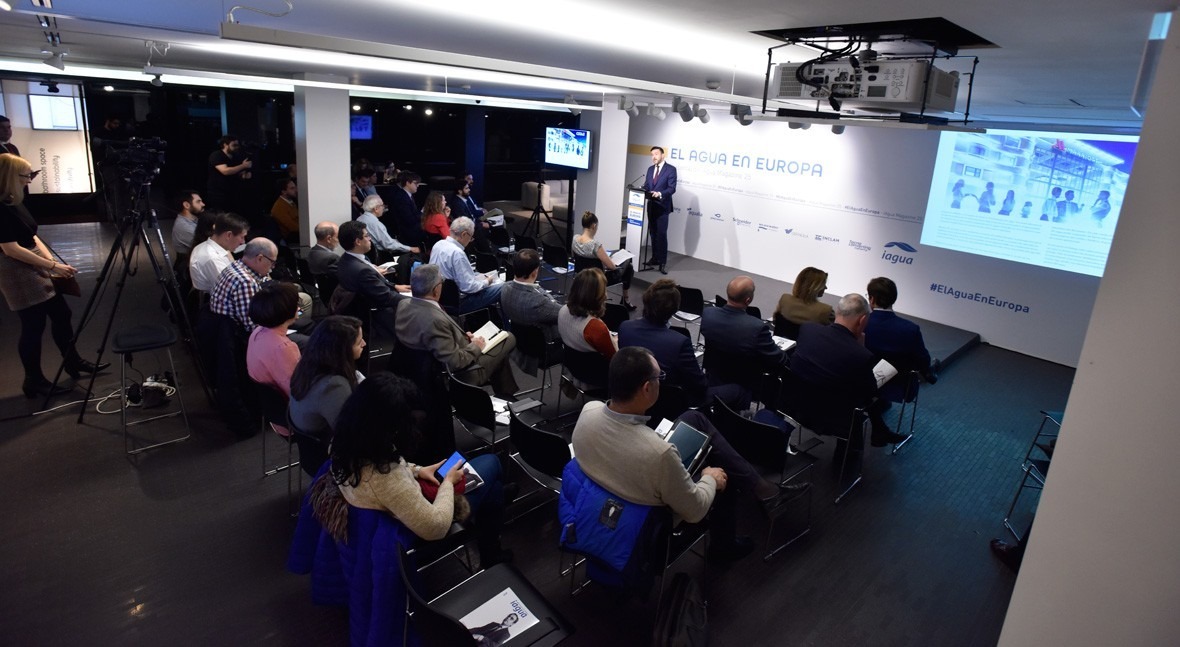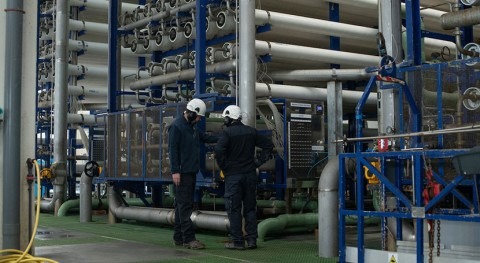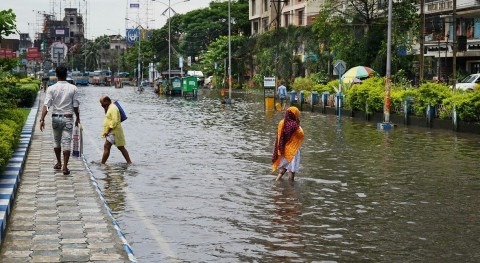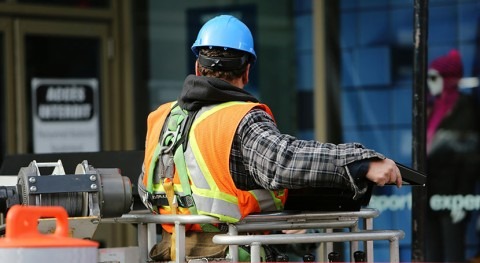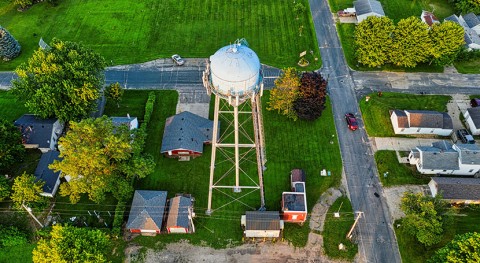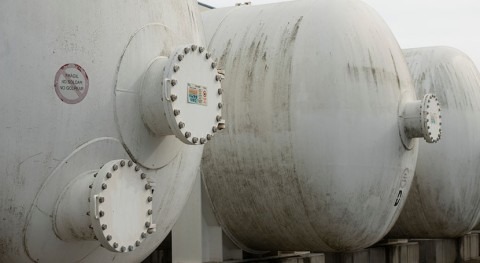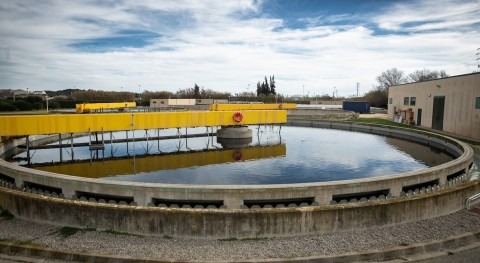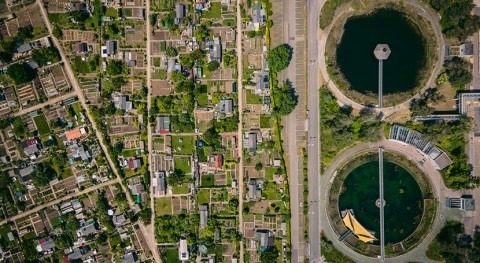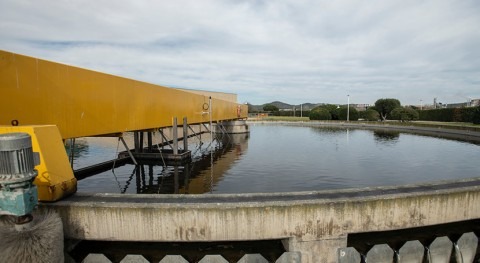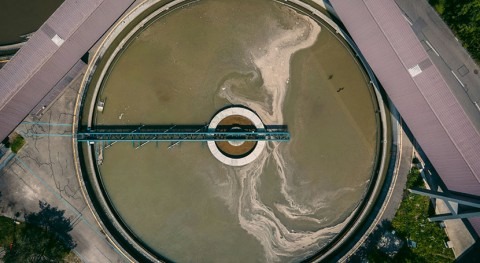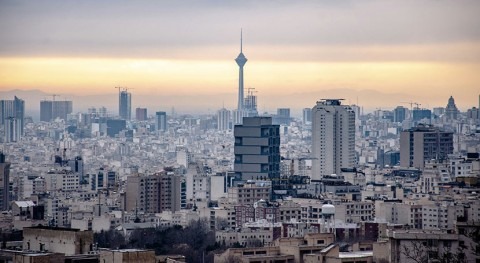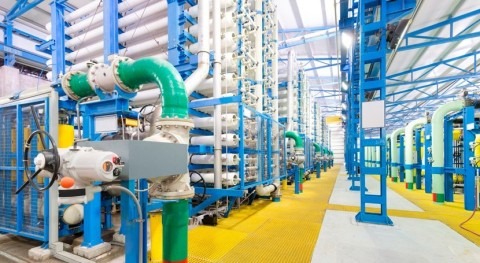iAgua, the leading media for water professionals in Latin America and Spain, held the presentation of the 25th issue of iAgua Magazine, which focuses on 'Water in Europe', an event hosted by the Roca Madrid Gallery.
More than 150 people witnessed an analysis of water management challenges in Europe, showcasing remarkable success stories and cutting-edge technologies being used to meet the growing demand for water resources, subject to increasing pressures.
Europe can boast being a pioneer of many advances in water management, but the current scenario, with climate change and population growth pressures on the rise, calls for the creativity and collaboration of all sectors, supported of course by the advances offered by new technologies in the water sector.
The effects of climate change and the forecast population growth have made Europe an excellent lab to test water governance and technologies
Elisa Martínez, Director of Roca Madrid Gallery, opened the event and thanked the organisers for choosing this venue, once again, to host the final iAgua event of the year. Alejandro Maceira, Founder and Director of iAgua, addressed the attendees and reviewed the accomplishments of iAgua over the past decade, noting: 'the past few years have been really incredible for us. With iAgua we are undisputed leaders in water information in Spain and Latin America.'

Ivan Nazaretto, Technical Water Consultant at Schneider Electric
In addition, he presented CETA2020, the Spanish Water Treatment Conference, which iAgua will hold on the 23th and 24th of March 2020 at the Marriott Auditorium Hotel, in Madrid, with the purpose of contributing viable solutions that benefit all citizens, bringing together senior officials from Public Authorities responsible for integrated water cycle management. The conference will also host a new edition of the iAgua Awards and the presentation of an exclusive report on the current situation and needs in terms of water treatment infrastructure in Spain.

Guillermo Moya, Europe Regional Manager at Aqualia
In this regard, Maceira highlighted that 'CETA2020 will be a major meeting point to sort out the priorities of the water sector for the new decade'.
Next, Águeda García de Durango, Chief Editor of iAgua and Smart Water Magazine, presented the key contents that readers can find in the more than 120 pages of iAgua Magazine 25, such as the iAgua Magazine Forum, where five experts discuss the road travelled and the challenges ahead for water management in Europe.
Another major content piece is the cover page interview with Alfonso Andrés Urrutia, Director General of Grupo INCLAM, with whom David Escobar had a conversation during the presentation of iAgua Magazine 25.
.jpg)
Alfonso Andrés Urrutia, Director General of Grupo INCLAM
During the iAgua Dialogue, Mr Urrutia reflected on the position of Spanish engineering firms as global leaders, where Grupo Inclam occupies a prominent place, with presence in more than 13 countries; it will be part of the Spanish alternative investment market (Mercado Alternativo Bursátil). He noted that Grupo INCLAM 'is committed to new lines where we can develop large projects and to incorporating technology to the water sector'. He also commented on the irruption of the water sector in the digital word: 'the water sector has to dive head-first into the digital transformation. It is currently adopting new technologies too progressively'.
.jpg)
Mariano Blanco, member of Eureau's Executive Committee
Cities are home to an increasingly larger share of the global population. Concerning water services, most Europeans have access to drinking water and a large percentage also have access to sanitation. Mariano Blanco, member of Eureau's Executive Committee, presented the main characteristics of water services management in Europe. Mr Blanco highlighted the importance of the Federation, noting that 'Eureau represents 32 national associations of water and waste water operators from 29 European countries'. He also spoke about the circular economy applied to the water sector, a concept that he thinks 'has to do more with a design issue, than with applying concepts such as the "polluter pays" principle'.

Bruno Bastos, HQ Strategy Director at Miya
The effects of climate change and the forecast population growth require public and private entities committed to increasing the efficiency of water resource management with measures and technology suitable for the challenge ahead of us. iAgua therefore devoted two blocks of presentations to successful water management cases in Europe. In the first one, Guy Fournier, Managing Director of Saur Neptun Gdańsk, talked about Poland; Guillermo Moya, Europe Regional Manager at Aqualia, spoke about his company's experience in the Czech Republic; Bruno Bastos, HQ Strategy Director at Miya, gave a presentation on their work in Portugal; and finally, Ivan Nazaretto, Technical Water Consultant at Schneider Electric, talked about the situation in Italy.

Michael Bates, Business Development Manager at Polypipe

Carlos Tejedor, Technical Leader of the Smart Metering Division at GoAigua
The second block included three presentations: Michael Bates, Business Development Manager at Polypipe, spoke about the United Kingdom; Javier Prieto, Marketing & Sales Manager of LBL Energy Industries for ABB in Spain, talked about Sweden; and Carlos Tejedor, Technical Leader of the Smart Metering Division at GoAigua, presented his company's work in the city of Gandía, Spain.
Indeed, climatic diversity has made Europe an excellent lab to test water governance and technologies. Whereas in the north abundant water requires developing policies and tools to address the effects of floods, the south of Europe is a paradigm of water management in water scarce settings.

Fernando Magdaleno, Area Coordinator at the Water Directorate General of the Spanish Ministry for the Ecological Transition (MITECO)
The presentations continued with Fernando Magdaleno, Area Coordinator at the Water Directorate General of the Spanish Ministry for the Ecological Transition (MITECO), talking about the legal framework for water management in Europe; the continent has made remarkable progress in the development of regulations, and he showed how they have led to new challenges for water management in all areas. To this effect, Mr Magdaleno noted that 'the European and Spanish legal framework substantiates the essential connection between water, land and society, and the need to undertake multi-functional actions'.

Guido Schmidt, Senior Water Policy Expert & Project Manager at Fresh Thoughts Consulting GmbH
Furthermore, Guido Schmidt, Senior Water Policy Expert & Project Manager at Fresh Thoughts Consulting GmbH, addressed the role of innovation in the sector, specifying that 'in terms of water, we need more implementation and innovation'. He also spoke about the status of biodiversity, stressing the need for a change given its significant deterioration. According to him, '60% of aquatic species are threatened compared to the 90s'.

Eduardo Perero, technician at the CONAMA Foundation and Vice President of the Spanish Environmental Science Association
Then, Eduardo Perero, technician at the CONAMA Foundation and Vice President of the Spanish Environmental Science Association, spoke about the need for the sector to commit to the circular economy, realising the effects of climate change, and how the water sector must interact in a cross-cutting manner with other sectors. His view and the also the Foundation's is that 'one of the things we have realised is that water and energy were not very well connected with the circular economy'. Perero thinks that the climate agenda sets the steps to follow for many sectors, something necessary because 'up to now, water was only contemplated in the circular economy package with regard to reuse'.
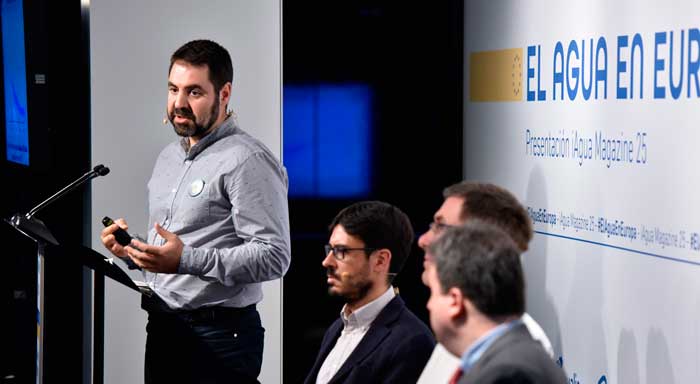
Rafael Seiz, Water Projects Officer for the Water and Food Programme at WWF Spain
Finally, Rafael Seiz, Water Projects Officer for the Water and Food Programme at WWF Spain, contributed the environmental vision of water management in the European continent, analysing the evolution of the Water Framework Directive in the almost 20 years since its entry into force, and the challenges ahead with the update of the directive. Mr Seiz urged to 'leave aside the excuses we have used up to now and act with conviction', and he pointed out that: 'there is no doubt that the integration of WFD objectives with the objectives of policies in other areas such as agriculture, energy, transportation and biodiversity protection has to improve'.
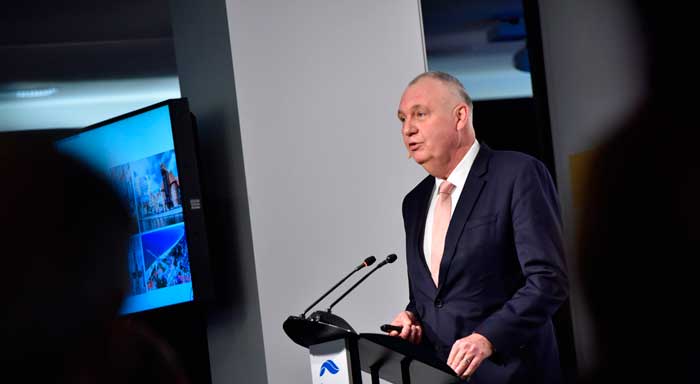
Guy Fournier, Managing Director of Saur Neptun Gdańsk
Lastly, the presentation of iAgua Magazine 25 closed with a round table comprising the final four speakers, moderated by Alejandro Maceira, where future challenges where discussed. On this occasion, event attendees were able to ask questions to round table members using the Sli.do app, and the most voted ones were answered. Fernando Magdaleno answered about his view on the usefulness and implementation of the Water Framework Directive: 'we need real harmonisation and convergence among different public authorities'.

Javier Prieto, Marketing & Sales Manager of LBL Energy Industries for ABB in Spain
In fact, if something was clear during this day of discussions about water in Europe, is that Europe's leadership in water management is on the right track, but a lot remains to be done.


